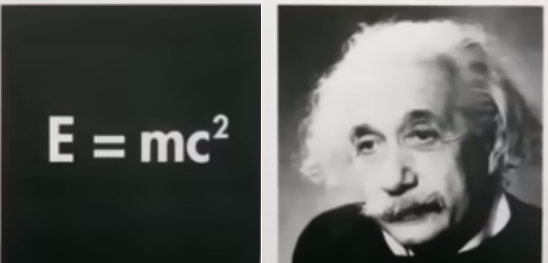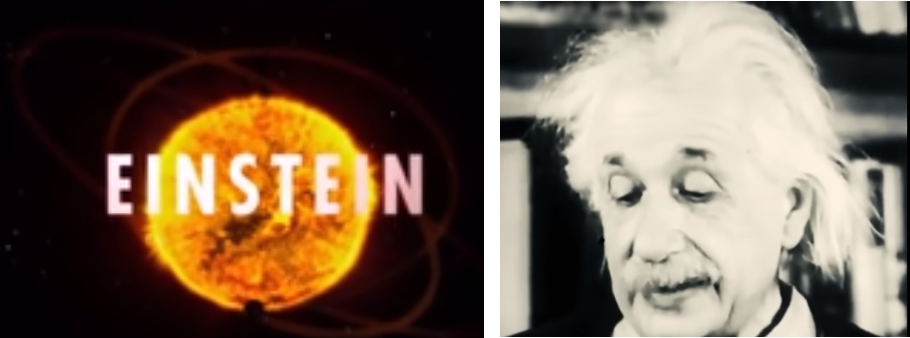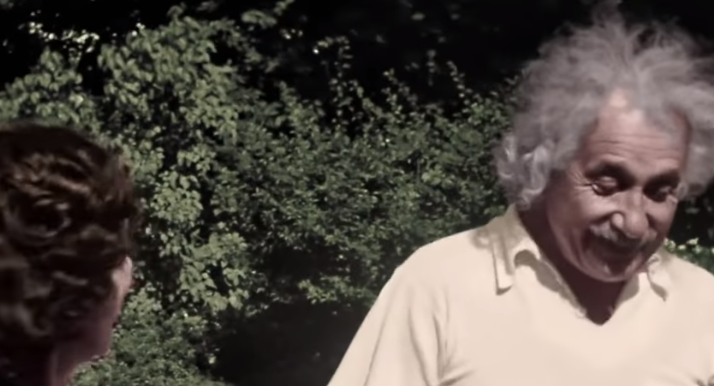Albert Einstein (14 March 1879 - 18 April 1955) is regarded as the most influential and outstanding scientist of all time. His groundbreaking theory of relativity introduced the concept that a time machine capable of traveling to the past or future is possible at the speed of light.
The famous equation E=mc2 showed how to make an atomic bomb, which means that energy can be converted into matter and matter into energy. However, getting electricity from nuclear energy has also become possible. The theory of relativity opened a window of infinite opportunities in the form of Quantum Mechanics. Because of radio and propagating waves, the phenomenon of numerous galaxies, black holes, and black matter became possible.
The brain of this genius professor was preserved after his death without the permission of his family. When his brain was examined, his mathematical thinking and spatial center, the inferior parietal lobe, was found in an exceptional quantity that receives and coordinates the information.
Academic Journey and Scientific Victories
Albert Einstein was born on 14 March 1879 in Ulm, Germany, at the home of his engineer father, Hermann Einstein, and his musician mother, Pauline Koch. At the age of twelve, he studied Algebra and Geometry with so much interest that he discovered his own Pythagorean Theorem. At the age of 14, he became an expert in Integral and Differential Calculus. He appeared in the entrance examination for the Federal Polytechnic School Zurich in 1896 and got outstanding marks in Physics and Math.
He did his B.A. there in 1900 and completed his Ph.D. at the University of Zurich in 1905. He began his scientific career at Bern University in 1908. On the successful lecture on electrodynamics and relativity principles, he was appointed associate professor of theoretical physics at the University of Zurich in 1909. Later, he became a professor at Charles University of Prague in 1911.
Besides, he also delivered lectures at various universities and institutions. In 1915, when he published his theory of relativity, the British renowned newspaper The Times printed the headline, "Revolution in Science - New Theory of the Universe - Newtonian Ideas Overthrown". Einstein was awarded the Nobel Prize in physics for the law of the photoelectric effect in 1921.
Scientific Career and Intellectual Ideas
Einstein's scientific career comprises 300 scientific theses and 150 unscientific theses, whereas universities and archives introduced Einstein's Papers, consisting of thirty thousand unique documents on 5 December 2014.
In the history of science, the name Einstein is included in the list of geniuses and the most influential scientists. Einstein once expressed his intellectual thoughts by saying, "I believe in democratic independence and a democratic system among human beings". Avoiding hero worship, individual intelligence should be promoted. There are a lot of educational institutions, but prestigious and efficient teachers are lacking. The thirst for truth and justice is less, but lust is abundant. Every person should be allowed to judge things and decisions in the light of their own faith. Intellectual work and research should be promoted. The health of society depends on personnel. Unquestioning acceptance should be avoided. Turn loneliness into a friend for research and transform books into companions for imagination.
Love for Science, Literature, and Music
Einstein once said that science was lame without religion, ethics, and literature. He was the owner of mathematical and imaginative intelligence. His appearance of whimsical disposition and scattered hair remained a comedy, entertainment, and cartoons. More than 100 books have been written on his sayings and work. He is still a riddle. Very few people claim to understand his relativistic universe. He spent his boyhood listening to the music of Bach, Mozart, and Schubert, playing violin, and reading the novels of James Joyce.
He was not an atheist but liked to call himself agnostic. He said, "A child does not know which book, when, and who wrote in this vast library of the universe?" He struggled for peace and love throughout his life.
American Citizenship and Demise
Einstein went to America in 1933. His return became difficult as Germany came under the rule of Hitler. In 1940, he accepted American Citizenship in New Jersey. He remained affiliated with the Institution of Advanced Study till his death. He was pro-socialist and anti-capitalist. He never believed in life after death. He remained under treatment at Princeton University due to internal bleeding. He refused surgery and said, "It is better to die than prolonged artificial life. Now it is time to go. I should say farewell to life in a prestigious way". He passed away at the age of 76, and his brain was preserved for neuroscience research.



